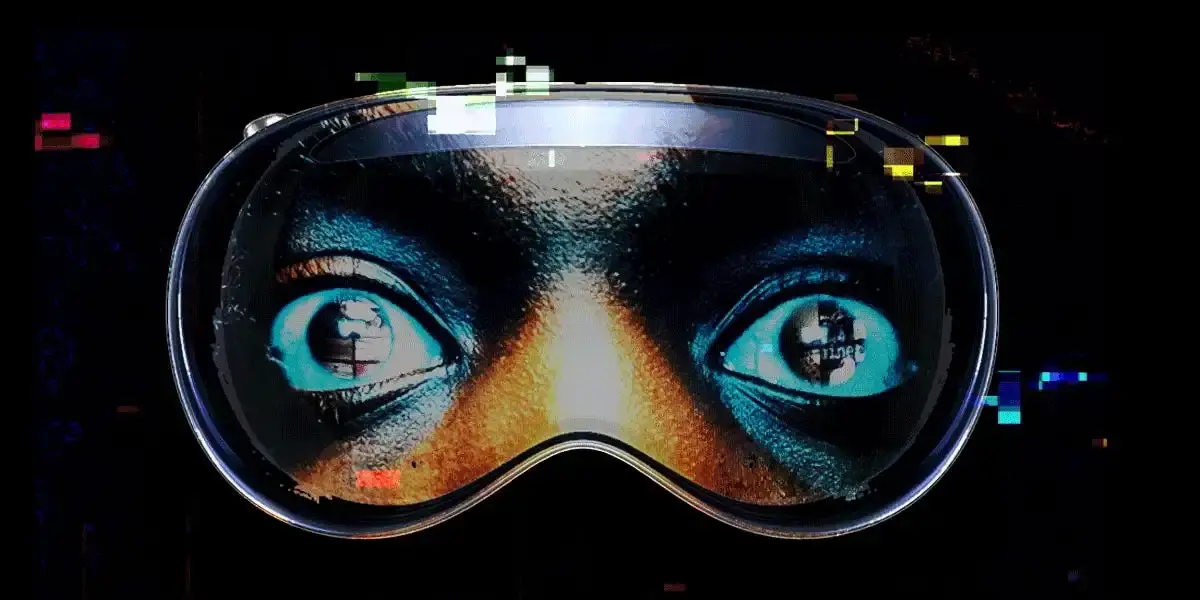
Unless we move toward a society where everyone is wearing a VR headset 24/7, I don’t think we need to worry about most of the issues mentioned in the article… Still worth a read, but a bit exaggerated

The article talked about that directly, no? People wearing headsets all day at work and then having to head home in a weird “my legs still think I’m on a boat” state. I’m curious how long-term use impacts driving considering it can affect depth perception and the like

I’m more referring to the idea of erasing images of homeless people or pride flags, which the article does mention. I know it’s intended as food for thought, and I see the angle, but who is taking a stroll downtown with a headset on?

When the technology has shrunk enough to be comfortable for extended periods of time and the displays + cameras are good enough to prevent distortion and other weird effects, probably some people (that have disposable income)! It’s still early expensive tech so adoption isn’t going to be widespread

Those people are in for a rude awakening when it turns out an erased person can still give them a wack across the head.
VR hype/doom really tends to downplay the importance of material reality. VR offers no shelter, no food, no sex, no true impact in the world. It is only a platform for media.

I love when articles use “may” to cover the lack of story lol. I “may” get pizza for dinner, but I also likely won’t. Anything’s possible

It’s biz insider, not sure what anyone expected here.

Long term wearing of vr headsets might indeed be not all that good. Though, the article is light on actual information and is mostly speculation. Which for the Apple Vision Pro can only be the case as it hasn’t been out long enough to conduct anything more than a short term experiment. So that leaves very little data in the way of long term data points.
As far as the experiment they did, there was some information provided (although not much). From what was provided this bit did stand out to me.
The team wore Vision Pros and Quests around college campuses for a couple of weeks, trying to do all the things they would have done without them (with a minder nearby in case they tripped or walked into a wall).
I wonder why the Meta Oculus Quests were not included in the title. If it is the meta Quest 3, it is fairly capable as far as pass through goes. But, not nearly as good as I understand the Apple Vision Pro’s passthrough is. I am not saying the Apple Vision Pro is perfect, in fact it isn’t perfect if the reviews I have seen are any indicator. It is still very good, but there is still distortion around edges of vision, etc.
But given the price difference between the two I am wondering if the majority of the particpants actually used Quests as then I’d say that the next bit is basically a given:
They experienced “simulator sickness” — nausea, headaches, dizziness. That was weird, given how experienced they all were with headsets of all kinds.
VR Nausea is a known thing even experienced people will get. Truly walking around with these devices with the distorted views you get is bound to trigger that. Certainly with the distortion in pass through I have seen of Quests 3 videos. I’d assume there are no Quests 2 in play as the passthrough there is just grainy black and white video. :D
Even Apple with all their fancy promo videos mostly shows people using the Vision pro sitting down or in doors walking short distances.
So yeah, certainly with the current state of technology I am not surprised there are all sorts of weird side effects and distorted views of reality.
What I’d be more interested in, but what is not really possible to test yet, is what the effects will be when these devices become even better. To the point where there is barely a perceivable difference in having them on or off. That would be, I feel, the point where some speculated downsides from the article might actually come into play.

Which for the Apple Vision Pro can only be the case as it hasn’t been out long enough to conduct anything more than a short term experiment.
Nah, we’ve had AR stuff for like a decade by now. That’s enough to call this article pseudoscience at best. It’s flat-earth level stupidity, not a valid speculation.

The Vision Pro, despite Apple’s marketing, is not AR. AR devices like Hololens allow you to see AR overlayed on top of the world. VR devices like the Vision Pro allow you to see the world behind the headset through cameras. VR isn’t really new either, but VR headsets that you can realistically wear continuously like in Apple’s ads have yet to come out.

Apple hasn’t called it AR.
But it absolutely is AR. If you can see the real world in real time, with additional information on top of it, that’s AR. Your requirement that it not be on a screen is completely arbitrary and has no basis behind it whatsoever.

With the Vision Pro you can sort of see the real world in nearly real time with some distortions because the cameras don’t match your eye positioning, and the dynamic range is clamped to what is supported by the cameras and displays, and everything is at the same focal distance, and your peripheral vision is limited. It’s definitely not the same class of device as what has traditionally been called AR.
A small number of people have been to varying degrees living in VR headsets and they’ve been alright, but it’s not for everyone. Besides the weight and having to manage the battery, you run into issues like the cameras having difficulty in dark environments or when objects are very close. After enough hours the motion sickness goes away.

“AR” has always been sci-fi. The details you’re discussing have never been part of the discussion because it was fiction.
This is far more AR than any of the shitty displays that project on glasses (all of which also are distorting and changing the light from the real world) and don’t have meaningful capacity to interact with the real world inputs. Any reasonable definition of AR absolutely is including the Apple Vision. It’s the real world, in real time, with all the inputs and processing capability required to interact with it.
All your other complaints have nothing whatsoever to do with your silly definition of AR made for the sole purpose of excluding the most exciting piece of tech in the space ever. Weight and battery capacity are also completely unrelated to any possible valid definition of what AR is.

Ah, that’s right. But there have been people wearing VR goggles very long. And MS Hololens (although AR) was similar enough to not ignore imho.

BS.
According to him, people drive their Hondas into a supermarket after playing VR.
Adam Rogers is a senior correspondent at Business Insider.
Guessing he’s not a researcher. He has no idea what he’s writing. Just cherry-picking scientific articles to push his weird ideas. Might be a flat-earther or antivaxxer.
And Business Insider employs him as a senior correspondent. Fucking hell…

That part of the article was a hypothetical about someone driving while wearing a passthrough AR headset. It was not talking about VR sickness. There was no claim in the article that VR causes car collisions.

Okay, that’s fair, but it doesn’t really change much about the article in my opinion.

Business Insider has always written braindead content.

Those are some wild accusations lmao

No it won’t. Clickbaity stupid bullshit.
Wow, what a constructive and useful comment. Thank you for contributing 💜💜

Hey Business Insider, I missed your previous article “Frequent/Long-Term use of the smart phone may rewire our brains in unexpected ways”
(This is not criticism of OP, I just think the premise by BI is silly when we are currently reaping the effects of smart phone addiction and ubiquity.)
Technology addiction is very real but I’m not worried about the $3,500 headset that will never reach consumer saturation at that price point. Be careful out there with anything you buy or consume.
-Sent from the latest iPhone 😂

Black Mirror talked about this one

Bro, how long have these things been out for? It’s nowhere near “long term”.

Why are you sharing a license in your post?

He thinks it protects his “content”.

I’m gonna sell your comment and not attribute you


